University Course - Data Science Methods for Smart City Applications
 Data Science Methods for Smart City Applications (UNIV 3360/5360) is a project-based course that will integrate technological and socio-economic approaches to challenges facing metropolitan areas experiencing unprecedented growth. It will address the infrastructure and resources needed for sustainable development and to maintain quality of life. By applying a technology-driven, internet-of-things framework to the smart cities concept of urban development, this course will address ethical and justice concerns that include privacy and equitable access to data. Through immersive field research experiences and cross-disciplinary learning activities, students will be able to link the “biology of learning” to innovative, applied social science research experiences. Taught jointly by faculty from Engineering, Peabody and Arts & Sciences, this course will combine lectures on the fundamental material with a semester-long, interdisciplinary group project. Project Descriptions
Data Science Methods for Smart City Applications (UNIV 3360/5360) is a project-based course that will integrate technological and socio-economic approaches to challenges facing metropolitan areas experiencing unprecedented growth. It will address the infrastructure and resources needed for sustainable development and to maintain quality of life. By applying a technology-driven, internet-of-things framework to the smart cities concept of urban development, this course will address ethical and justice concerns that include privacy and equitable access to data. Through immersive field research experiences and cross-disciplinary learning activities, students will be able to link the “biology of learning” to innovative, applied social science research experiences. Taught jointly by faculty from Engineering, Peabody and Arts & Sciences, this course will combine lectures on the fundamental material with a semester-long, interdisciplinary group project. Project Descriptions
Instructors
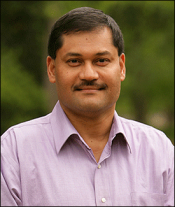 Gautam Biswas,
Professor of Computer Science. Biswas conducts research in Intelligent Systems with primary interests in hybrid modeling, simulation, and analysis of complex embedded systems, and their applications to diagnosis, prognosis, and fault-adaptive control.
Gautam Biswas,
Professor of Computer Science. Biswas conducts research in Intelligent Systems with primary interests in hybrid modeling, simulation, and analysis of complex embedded systems, and their applications to diagnosis, prognosis, and fault-adaptive control.
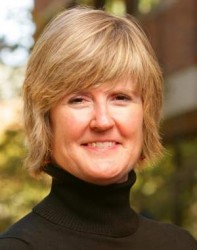 Claire Smrekar, Associate Professor of Public Policy and Education. Smrekar conducts qualitative research studies related to the social context of education and public policy, with specific focus on the impact of desegregation plans and choice policies on families, schools, and neighborhoods.
Claire Smrekar, Associate Professor of Public Policy and Education. Smrekar conducts qualitative research studies related to the social context of education and public policy, with specific focus on the impact of desegregation plans and choice policies on families, schools, and neighborhoods.
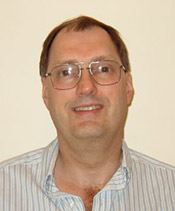 Mark Ellingham, Professor of Mathematics. Ellingham's research interests include graph theory, including paths and cycles, graph embeddings, reconstruction, edge colorings, isomorphic factorizations and algebraic graph theory.
Mark Ellingham, Professor of Mathematics. Ellingham's research interests include graph theory, including paths and cycles, graph embeddings, reconstruction, edge colorings, isomorphic factorizations and algebraic graph theory.
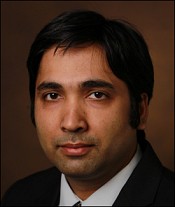 Abhishek Dubey, Assistant Professor of Computer Science. Dubey's research goals are to develop tools, platforms and analytical techniques required for dynamic and resilient cyber-physical platforms. His current research focuses on developing hierarchical failure propagation models for understanding failure dynamics in smart grid and using that information for online fault diagnostics and prognostics.
Abhishek Dubey, Assistant Professor of Computer Science. Dubey's research goals are to develop tools, platforms and analytical techniques required for dynamic and resilient cyber-physical platforms. His current research focuses on developing hierarchical failure propagation models for understanding failure dynamics in smart grid and using that information for online fault diagnostics and prognostics.
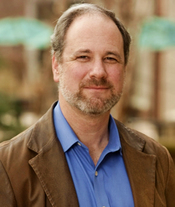 David Kosson, Professor of Civil and Environmental Engineering. Kosson focuses on research in waste management and environmental remediation that allows new understanding of the fundamental behavior of chemical and radionuclide contaminants in wastes, engineered systems and the environment to impact major decisions and policy.
David Kosson, Professor of Civil and Environmental Engineering. Kosson focuses on research in waste management and environmental remediation that allows new understanding of the fundamental behavior of chemical and radionuclide contaminants in wastes, engineered systems and the environment to impact major decisions and policy.
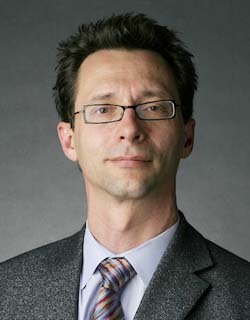 Jonathan Gilligan, Associate Professor of Earth and Environmental Science. Gilligan works primarily at the intersection of natural science, social science, and public policy with a focus on coupled human-natural systems and on the ways in which scientific knowledge and uncertainty affect policy decisions about the environment.
Jonathan Gilligan, Associate Professor of Earth and Environmental Science. Gilligan works primarily at the intersection of natural science, social science, and public policy with a focus on coupled human-natural systems and on the ways in which scientific knowledge and uncertainty affect policy decisions about the environment.
Course Overview
Key features:
- Become immersed with integrative technological and socio-economic approaches to challenges facing metropolitan areas experiencing unprecedented growth to as to maintain sustainable development and improve quality of life.
- Engage in a cross-college course and interact with faculty and students from the School of Engineering, College of Arts and Science and Peabody College to work at the cutting edge of a series of complex, socio-technical problems
- Participate in unique, multidisciplinary project teams to tackle big questions and real-world problems associated with transportation, energy use and safety using IoT concepts, qualitative and quantitative data, mixed methods, advanced analytics and machine learning methods.
Degree requirements fulfilled:
- School of Engineering: Open Elective credit (undergraduate students only).
- Peabody College: Elective credit towards the degree (undergraduate students only). Counts toward the Methods of Inquiry requirement for the Cognitive Studies major. Counts as elective credit toward the M.Ed. programs in Community Development and Action and Child Studies.
- Graduate School: Elective credit towards the degree.
